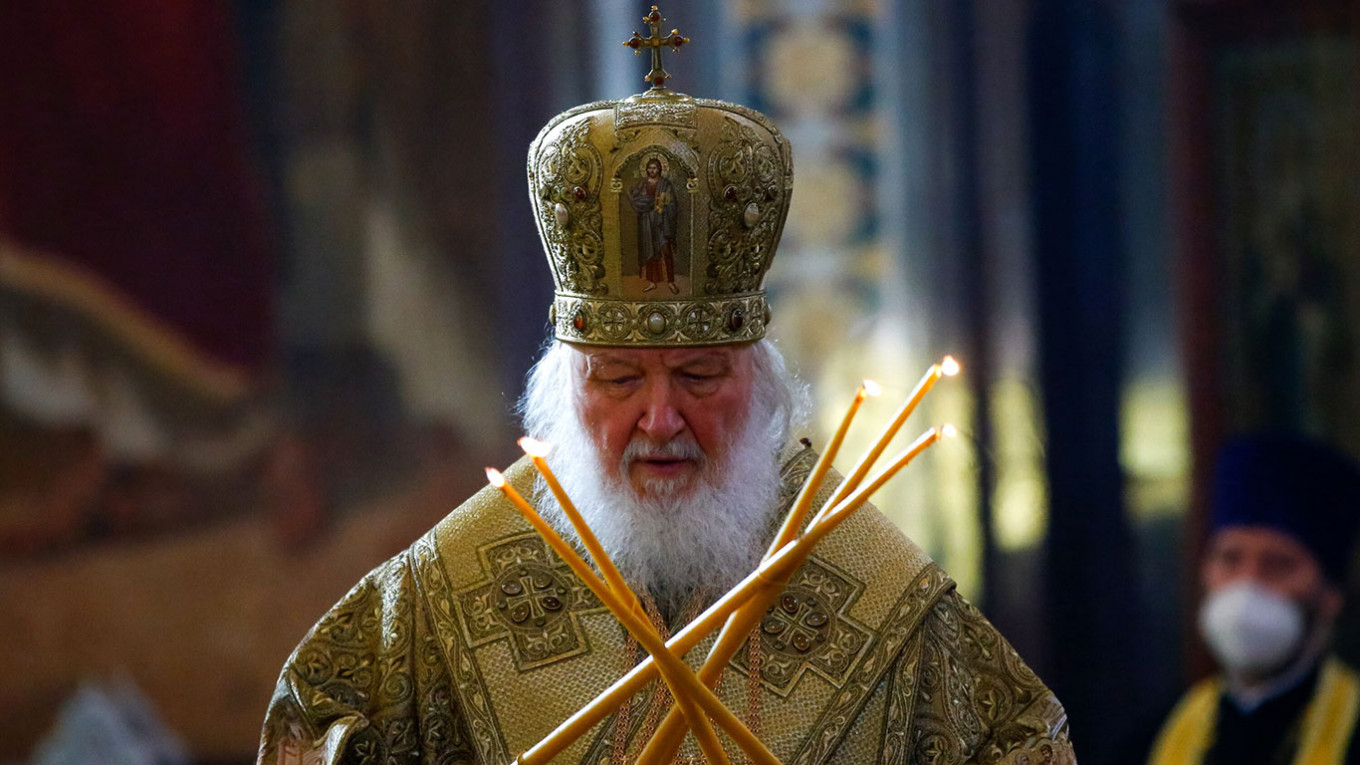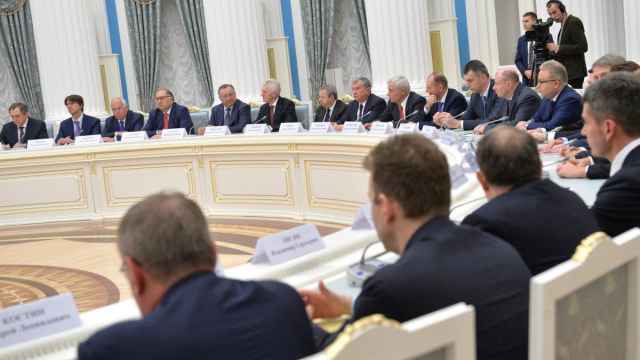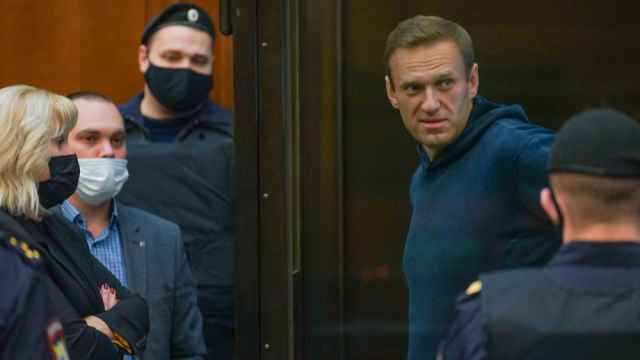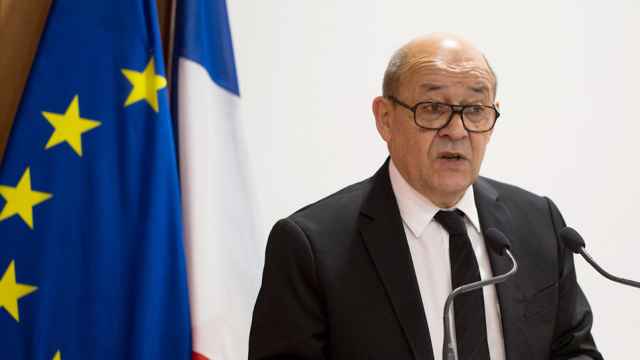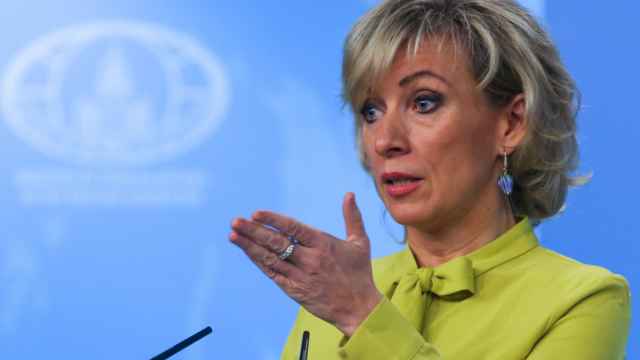The European Union's executive unveiled Wednesday plans for a gradual ban on Russian oil imports as part of a raft of new sanctions to punish Moscow for invading Ukraine.
The European Commission also proposed slapping sanctions on Russia's biggest bank and the targeting of Patriarch Kirill, the head of the Russian Orthodox Church.
If approved by member states, the oil ban would be the EU's toughest move yet against the Russian energy sector, which helps the Kremlin finance its war.
But it will still not touch Russia's huge gas exports — and several EU member states are demanding an extension to the deadline to halt oil imports while they secure new sources of fuel.
The oil embargo would be part of the bloc's sixth sanction package and would be phased-in over the rest of the year to help countries adapt.
The EU is the biggest consumer of Russia's crude oil. Last year Russia supplied the bloc's 27 members with 30% of their crude and 15% of their petroleum products.
"We now propose a ban on Russian oil. This will be a complete import ban on all Russian oil: seaborne and pipeline, crude and refined," European Commission chief Ursula von der Leyen told the European Parliament.
But, she added, "we will make sure that we phase out Russian oil in an orderly fashion," with crude banned gradually over the next six months and refined fuels by the end of the year.
Ambassadors from the 27 European Union countries met on Wednesday to assess her plan, and it will need unanimous approval before going into effect.
Kremlin spokesman Dmitry Peskov — whose wife, son and daughter were also targeted on Wednesday — downplayed the proposal, saying the EU would "pay a high price in trying to hurt us."
"The cost of sanctions for the citizens of Europe will grow by the day," he added.
Extra year
The proposal also asked that Hungary and Slovakia, both hugely dependent on Russian oil, be given an extra year to meet the ban, a document seen by AFP showed.
In a statement sent to AFP, Hungary said it saw no guarantee for its energy security in the proposed ban.
Asked if this meant Hungary outrightly rejected the EU's proposal, the government press office did not immediately answer.
Czech Prime Minister Petr Fiala told reporters that he was seeking a two- to three-year postponement.
"We support the toughest sanctions possible against Russia... but from the start we have been saying the sanctions must not harm Czech citizens more than Russia," he said.
The Czech news agency CTK quoted Slovak Economy Minister Richard Sulik as saying his country also wants a three-year phase-out. "We agree with the sanctions, but we will need a transition period," he said.
German Economy Minister Robert Habeck said the embargo could lead to supply "disruptions" and price increases, but that Berlin backed it, having overcome its earlier reluctance.
This echoed a warning made in Washington, where U.S. Treasury Secretary Janet Yellen last month warned that an oil ban in the EU would bring higher prices across the globe and inflict little harm on Russia.
"The expectation is that global crude flows will re-work around the EU ban, with more Russian oil heading to China and India," said analyst Stephen Innes of SPI Asset Management.
'War supporter'
Von der Leyen also said her proposal would deny Sberbank, Russia's biggest bank, access to SWIFT, the global banking communications system.
By hitting Sberbank and two other banks, "we hit banks that are systemically critical to the Russian financial system and Putin's ability to wage destruction," she said.
Her proposal also singled out Patriarch Kirill, calling him "a long-time ally of President Vladimir Putin who has become one of the most prominent supporters" of the war.
Kirill once described Putin's rule as a "miracle of God," crediting him with ending the economic turmoil of the 1990s following the disintegration of the Soviet Union.
Von der Leyen said the new list also includes Russian military personnel deployed to Ukraine "who committed war crimes in Bucha and who are responsible for the inhuman siege of the city of Mariupol."
"This sends another important signal to all perpetrators of the Kremlin's war: We know who you are, and you will be held accountable."
The EU also proposed banning more Russian broadcasters from the airwaves in Europe.
The bloc already banned media outlets RT and Sputnik in March and pressured tech giants to remove them from their platforms.
A Message from The Moscow Times:
Dear readers,
We are facing unprecedented challenges. Russia's Prosecutor General's Office has designated The Moscow Times as an "undesirable" organization, criminalizing our work and putting our staff at risk of prosecution. This follows our earlier unjust labeling as a "foreign agent."
These actions are direct attempts to silence independent journalism in Russia. The authorities claim our work "discredits the decisions of the Russian leadership." We see things differently: we strive to provide accurate, unbiased reporting on Russia.
We, the journalists of The Moscow Times, refuse to be silenced. But to continue our work, we need your help.
Your support, no matter how small, makes a world of difference. If you can, please support us monthly starting from just $2. It's quick to set up, and every contribution makes a significant impact.
By supporting The Moscow Times, you're defending open, independent journalism in the face of repression. Thank you for standing with us.
Remind me later.


